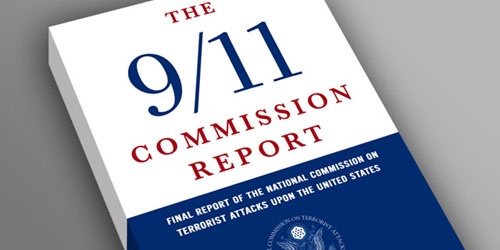NC congressman presses for release of censored 9/11 report pages

This week marks 13 years since the 9/11 attacks on New York and Washington, but the public still does not have access to all the details of what happened -- particularly those related to the involvement of foreign governments. That's because President George W. Bush classified 28 pages of the official report related to Saudi connections to the attacks, citing national security concerns, and President Obama has allowed the classification to continue.
But U.S. Rep. Walter Jones (R-NC) has read the 28 pages -- and he's now working to get them declassified. Last year he introduced H. Res. 428 to release the pages and has the support of 11 of his House colleagues, both Republicans and Democrats. In the order they signed on, the resolution's co-sponsors are Stephen Lynch (D-MA), Dana Rohrabacher (R-CA), Michael Grimm (R-NY), Thomas Massie (R-KY), Steve Stockman (R-TX), Alcee Hastings (D-FL), Paul Broun (R-GA), Ted Yoho (R-FL), Charles Rangel (D-NY), John Duncan Jr. (R-TN), and Howard Coble (R-NC). Jones, Lynch, and Massie held a press conference this week draw renewed attention to declassification effort.
"The families of the victims deserve to know all the facts concerning that tragic day," Jones said last December when he introduced the resolution. "Furthermore, the information contained in the redacted pages is critical to our foreign policy moving forward and should thus be available to the American public."
Last year Jones was interviewed about the resolution by former U.S. Rep. Ron Paul (R-TX) and discussed how he came to read the redacted pages in a heavily guarded room beneath the U.S. Capitol:
I had read a book by Sen. Bob Graham, former Senator from Florida who retired a few years ago. He was on the 9/11 Commission, as you remember, as co-chairman. And when they completed the report, he was very concerned that the Bush administration had said that they wanted to classify 28 pages from that report. So I took it upon myself to make a request, which you know you have to do with the Intel Committee on the House side to go down and read the 28 pages. You have to go down into a room that is guarded by uniformed officers and then also you have an FBI person to sit there as you're in the room. You can't make any notes. The Bush people do not want it released. It's not a national security issue. But it would be embarrassing to the previous administration if this information is opened for the public.
Congressman Massie of Kentucky called reading the withheld pages of the report "disturbing" and said, "I had to stop every two or three pages and rearrange my perception of history." In order to read the material, lawmakers must sign an oath not to reveal details about the contents.
Jones has reached out to a number of U.S. Senators including Rand Paul (R-KY), Tom Carper (D-DE), and Marco Rubio (R-FL) asking them to look into the matter and introduce a resolution, but a companion resolution has not been introduced in the Senate to date. In 2003, a group of 46 Senators led by Charles Schumer (D-NY) wrote a letter to President Bush appealing his decision to classify the 28 pages.
The recent push to declassify the section of the 9/11 report that touches on Saudi involvement comes as the decade-old lawsuit brought by victims of the attacks and their families continues to work its way through the courts, with the U.S. Supreme Court recently declining to hear an appeal by the Saudi government that sought to block the action. That lawsuit targets Saudi charities, banks and individuals for their roles in financing the attacks. Fifteen of the 19 hijackers involved in the attacks were Saudi nationals.
Tags
Sue Sturgis
Sue is the former editorial director of Facing South and the Institute for Southern Studies.
